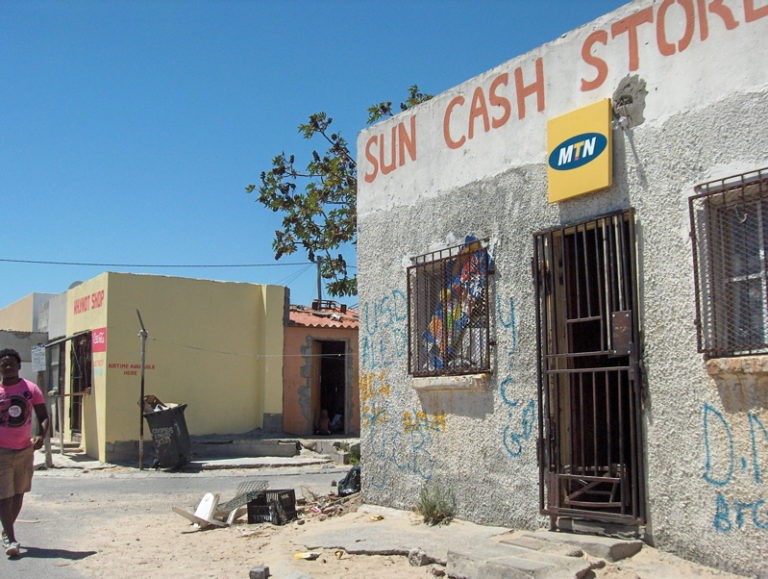
Refugee Entrepreneurial Economies in Urban South Africa
The article summarized below, “Refugees Entrepreneurial Economies in Urban South Africa” was originally authored by Jonathan Crush, Godfrey Tawodzera, Cameron McCordic, Sujata Ramachandran, and Robertson Tengeh and published by the Scalabrini Institute for Human Mobility in Africa (SIHMA).
The South African migration integration scene is highly characterised by xenophobia. While racism is based on race, xenophobia is based on nationality meaning that nationals of a hosting country dislike or are prejudiced against people from other countries. Xenophobic attacks can be verbal but can also result in arson attacks, beating and even murder. Episodes of xenophobia in South Africa have been frequent since the end of apartheid in 1994. Hatred towards migrants originates from the perception that they are dishonest competitors who take advantage of South African resources to the detriment of poor South Africans. Many refugees in South Africa run their own businesses and they are often blamed for “stealing” customers, as their stores stay open for longer or have lower prices. A similar discourse is often used by South African politicians to steer away people’s attention from other pressing issues.
As part of their study, Crush et al. examine what they call “refugee entrepreneurial economies” and highlight how the refugee informal sector (contrary to what many South Africans believe) is beneficial to the South African economy in many ways. The authors view refugee business owners as “dynamic agents with skills and capabilities who can play an integral role in transforming local settings and contributing to economic development.” Crush et al. surveyed over 1,000 refugees in Cape Town and in the Limpopo Province to get a sense of the differences of setting up informal businesses in urban areas vs rural areas.
In both Limpopo and Cape Town, refugees operate in the following economic sectors: retail (75 – 79%), services (25 -28%) and manufacturing (4.4 – 7.5%). The most common items sold in Limpopo are clothing, confectionary, soft drinks and toiletries, while in Cape Town refugee businesses mainly sell cigarettes, clothing, personal accessories and confectionary. Refugee entrepreneurs in Limpopo and Cape Town have the same kind of capitals to start their activities; Crush et al. found that 85% of respondents opened their businesses using their own personal savings, while 20% borrowed money from relatives and 12% from non-relatives. The main difference between the two places is that refugees in Limpopo seemed to need less money to start their business. In fact, only 15% of respondents in Limpopo had more than 50,000 rand as start-up capital compared to 27% of respondents in Cape Town. What is interesting here, is that refugees use their own savings to start their businesses and do not rely on loans from banks, NGOs or other institutions.
The study reveals that small businesses owned by refugees bring five main benefits to South Africa. The first beneficiaries of these economic activities are formal sector suppliers such as wholesalers, supermarkets, fresh produce markets, retailers and manufacturers. This is because in order to restock refugees purchase from wholesalers. Secondly, the South African treasury greatly benefits from these informal activities. If on one side, small and informal businesses do not pay taxes, on the other side, they do pay value-added tax (VAT) on most of the supplies they buy from formal sector suppliers. This means that additionally to paying VAT on products, refugees are not able to claim rebates. Thirdly, refugee business owners pay rent to South African property owners. On average, monthly rentals in Limpopo are ZAR 4,555 and ZAR 4,838 in Cape Town.
Fourth, municipalities have a direct financial interest in refugees’ economic activities. As Crush et al point out 22% of refugees in Cape Town and 4% of refugees in Limpopo “pay into municipal coffers through rent for business sites.” Such rents amount to an average of ZAR 879 rand per month in Cape Town and ZAR 311 in Limpopo. Moreover, business owners need to pay an annual license fee to the municipality equal to ZAR 752 in Limpopo and ZAR 1,959 in Cape Town. Lastly, “refugee entrepreneurial economies” create jobs for South Africans. Refugee business owners hire South Africans because they speak local languages and understand customers quickly, but also as a form of security against theft.
As this research shows, contrary to what the majority of the people believe, “refugee entrepreneurial economies” are beneficial to the South African economy in multiple ways. It is useful to highlight these benefits in order to challenge public opinion and combat xenophobic attitudes
Categories:
Tags:

